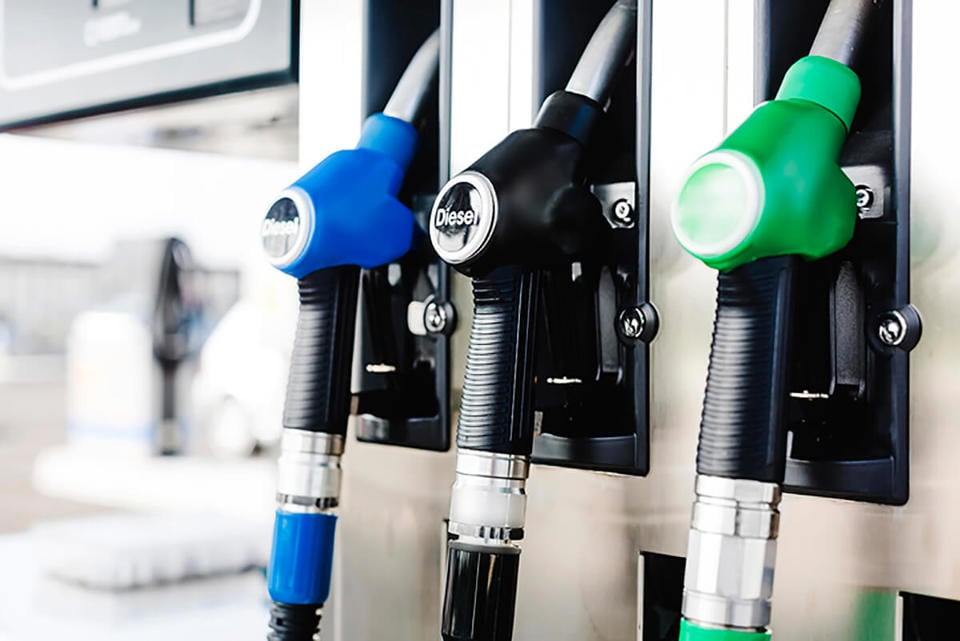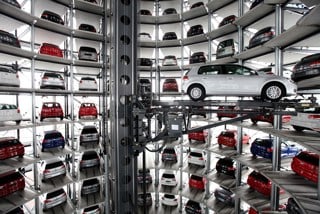The Government is being warned against ending the freeze on fuel duty after figures from the RAC showed fleet decision-makers had some respite at the pumps in June, with the average price of diesel and petrol falling.
RAC Fuel Watch data shows that diesel reduced by 1.5p a litre from 132.32p to 130.74p, while petrol fell from 129.37p a litre to 127.59p after the supermarkets cut their prices in response to lower wholesale costs.
As a result, it now costs £70.17 to fully top up an average 55-litre family car with petrol (nearly £1 (98p) a tank less than it did a month ago) and £71.91 for a similar car that runs on diesel (86p a tank less than a month ago).
The greatest price reductions were seen across UK supermarkets, where an average of 2.4p came off the price of a litre of unleaded, and 2p off a litre of diesel.
Drivers filling up at motorway services meanwhile saw no reduction at all in prices during June – with a litre of petrol remaining at 145p and diesel at 148p per litre.
RAC fuel spokesman Simon Williams said: “The big fuel retailers finally bowed to pressure in early June by cutting the price of both petrol and diesel at the pumps – offering some respite to drivers who just a month earlier had experienced the largest jump in average forecourt prices since the RAC began tracking prices.”
Unfortunately however, wholesale prices started to creep up again at the very end of the month – snuffing out the possibility of petrol and diesel prices becoming any cheaper through the start of July.
The price of oil slid back to around $72 a barrel in the middle of month, but since this point it has been rising again – ending June nearer $76 a barrel, with wholesale fuel prices now also starting to rise again.
Williams said: “We remain in a period of real volatility when it comes to fuel prices. Late in June the Organization of Petroleum Exporting Countries (OPEC), which represents some of the world’s largest oil producing nations, agreed to increase global oil production. While this would normally signal cheaper oil, and in turn cheaper fuel prices, other factors have been at play – namely an escalating trade dispute between the United States and other major countries and the prospect of renewed sanctions placed on another oil-producing nation, Iran.
“At the same time, the pound remains comparatively weak against the US dollar, which reduces the buying power of UK fuel retailers. With fuel costing them more to buy in, this invariably means higher prices are passed on to drivers at the pumps.
“As a result, motorists sadly shouldn’t hold out much hope for cheaper fuel in time for the start of the school summer holidays.”
The warning that fuel prices look set to rise again come as reports suggest that the Government is considering ending the fuel duty freeze.
Williams said: “Aside from the fact that petrol and diesel in the UK are subject to some of the highest levels of taxation anywhere in Europe, it is also the case that the fuels are at their highest prices for more than three years.
“With a significantly weaker pound, it would only take a few further oil prices rises this year to see prices start to rocket.”
Freight Transport Association (FTA) chief executive, David Wells, believes that increasing fuel duty would be self-defeating for the Government.
He said: “Every aspect of British business relies on lorries and vans, and the extra cost would simply slow the economy down and reduce tax receipts from other sources.
“Independent research has shown that actually if you cut fuel duty by 1 or 2 pence per litre, you would actually increase the Government’s tax revenue overall – that is the approach the Government should be taking.”
Meanwhile, Road Haulage Association (RHA) chief executive, Richard Burnett, highlighted how Britain’s businesses already pay the highest level of fuel duty in Europe – duty and VAT account for 65% of the price of a litre of diesel.
He said: “The government is clutching at straws to balance its books. Piling more costs on to hauliers at a time of Brexit uncertainty will be an economic disaster.
“It is completely unacceptable to now suggest that we should be forced to prop up other sectors.
“Any increase in fuel duty will put the livelihoods of thousands of small hauliers at risk. And if that happens, who will be there to foot their bill?”
Regional fuel price variation
Regional average unleaded pump prices
While London saw the largest drop in average petrol prices in June, it remains one of the most expensive places to fill up – second only to the South East of England. The North East is the cheapest place to buy the fuel. It is a similar picture when it comes to diesel: London saw the largest fall in average diesel prices but it stills costs more to fill up there than in most other parts of the UK, with Northern Ireland currently the cheapest.
|
Unleaded |
03/06/2018 |
28/06/2018 |
Change |
|
UK average |
129.37 |
127.59 |
-1.78 |
|
London |
130.09 |
128.17 |
-1.92 |
|
North West |
128.94 |
127.08 |
-1.86 |
|
South East |
130.19 |
128.36 |
-1.83 |
|
Scotland |
128.78 |
126.99 |
-1.79 |
|
East |
129.71 |
127.98 |
-1.73 |
|
West Midlands |
129.06 |
127.34 |
-1.72 |
|
East Midlands |
129.33 |
127.62 |
-1.71 |
|
South West |
129.54 |
127.83 |
-1.71 |
|
North East |
128.58 |
126.88 |
-1.70 |
|
Wales |
128.84 |
127.19 |
-1.65 |
|
Yorkshire And The Humber |
128.48 |
126.97 |
-1.51 |
|
Northern Ireland |
128.49 |
127.09 |
-1.40 |
|
Diesel |
03/06/2018 |
28/06/2018 |
Change |
|
UK average |
132.32 |
130.74 |
-1.58 |
|
London |
133.01 |
131.18 |
-1.83 |
|
Wales |
132.29 |
130.54 |
-1.75 |
|
South West |
132.63 |
130.91 |
-1.72 |
|
East |
132.80 |
131.12 |
-1.68 |
|
Scotland |
132.21 |
130.60 |
-1.61 |
|
South East |
133.07 |
131.50 |
-1.57 |
|
East Midlands |
132.26 |
130.73 |
-1.53 |
|
West Midlands |
131.77 |
130.28 |
-1.49 |
|
Yorkshire And The Humber |
131.43 |
130.01 |
-1.42 |
|
Northern Ireland |
131.08 |
129.70 |
-1.38 |
|
North West |
132.00 |
130.63 |
-1.37 |
|
North East |
131.65 |
130.35 |
-1.30 |






















Login to comment
Comments
No comments have been made yet.